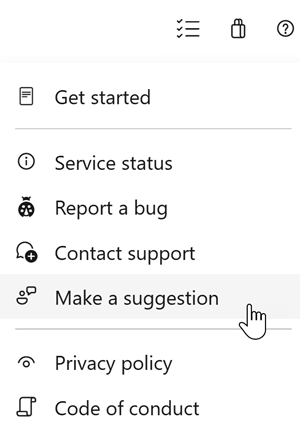Note
Access to this page requires authorization. You can try signing in or changing directories.
Access to this page requires authorization. You can try changing directories.
Features
- Deploy Azure Resource Manager (ARM) to subscription and management group level
- Updates to hosted pipelines images
- CD capabilities for your multi-stage YAML pipelines
- Bitbucket integration and other improvements in getting started with pipelines
- Support for PowerShell scripts in Azure CLI task
Deploy Azure Resource Manager (ARM) to subscription and management group level
Previously, we supported deployments only to the Resource Group level. With this update we have added support to deploy ARM templates to both the subscription and management group levels. This will help you when deploying a set of resources together but place them in different resource groups or subscriptions. For example, deploying the backup virtual machine for Azure Site Recovery to a separate resource group and location.
Updates to hosted pipelines images
We've made updates to several of the Azure Pipelines hosted VM images. The following are some the highlights in this update:
- Upgraded Visual Studio 16.2 to 16.3 for VS2019.
- Upgraded VS for Mac 8.2.6.26 to 8.3.0.1805 for macOS 10.13 and 10.14.
- Added Java 13 to macOS 10.13 and 10.14.
- Added Mono 6.4.0 to macOS 10.13 and 10.14.
- Upgraded Xcode 11-beta to 11.0 GA.
- Reduced the disk size to increase operational efficiency, resulting in a decrease of approximately 40GB of free space for Ubuntu 16.04.
- Various bug fixes.
You can find more details about the latest releases here.
Note
We will remove Ruby 2.3.x from all images in a future update since it reached end-of-life on March 31, 2019. In addition, we will remove Python 3.4.x which reached end-of-life on March 18, 2019.
CD capabilities for your multi-stage YAML pipelines
You can now consume artifacts published by your CI pipeline and enable pipeline completion triggers. In multi-stage YAML pipelines, we are introducing pipelines as a resource. In your YAML, you can now refer to another pipeline and also enable CD triggers.
Here is the detailed YAML schema for pipelines resource.
resources:
pipelines:
- pipeline: MyAppCI # identifier for the pipeline resource
project: DevOpsProject # project for the build pipeline; optional input for current project
source: MyCIPipeline # source pipeline definition name
branch: releases/M159 # branch to pick the artifact, optional; defaults to all branches
version: 20190718.2 # pipeline run number to pick artifact; optional; defaults to last successfully completed run
trigger: # Optional; Triggers are not enabled by default.
branches:
include: # branches to consider the trigger events, optional; defaults to all branches.
- main
- releases/*
exclude: # branches to discard the trigger events, optional; defaults to none.
- users/*
In addition, you can download the artifacts published by your pipeline resource using the - download task.
steps:
- download: MyAppCI # pipeline resource identifier
artifact: A1 # name of the artifact to download; optional; defaults to all artifacts
For more details, see the downloading artifacts documentation here.
Bitbucket integration and other improvements in getting started with pipelines
The getting-started wizard experience for Pipelines has been updated to work with Bitbucket repositories. Azure Pipelines will now analyze the contents of your Bitbucket repository and recommend a YAML template to get you going.
Note
Bitbucket support is for Azure DevOps Services only.
A common ask with the getting-started wizard has been the ability to rename the generated file. Currently, it is checked in as azure-pipelines.yml at the root of your repository. You can now update this to a different file name or location before saving the pipeline.
Finally, we you will have more control when checking in the azure-pipelines.yml file to a different branch since you can choose to skip creating a pull request from that branch.
Support for PowerShell scripts in Azure CLI task
Previously, you could execute batch and bash scripts as part of an Azure CLI task. With this update, we added support for PowerShell and PowerShell core scripts to the task.

Next steps
Note
These features will roll out over the next two to three weeks.
Head over to Azure DevOps and take a look.
How to provide feedback
We would love to hear what you think about these features. Use the help menu to report a problem or provide a suggestion.

You can also get advice and your questions answered by the community on Stack Overflow.
Thanks,
Kurt Samuelson